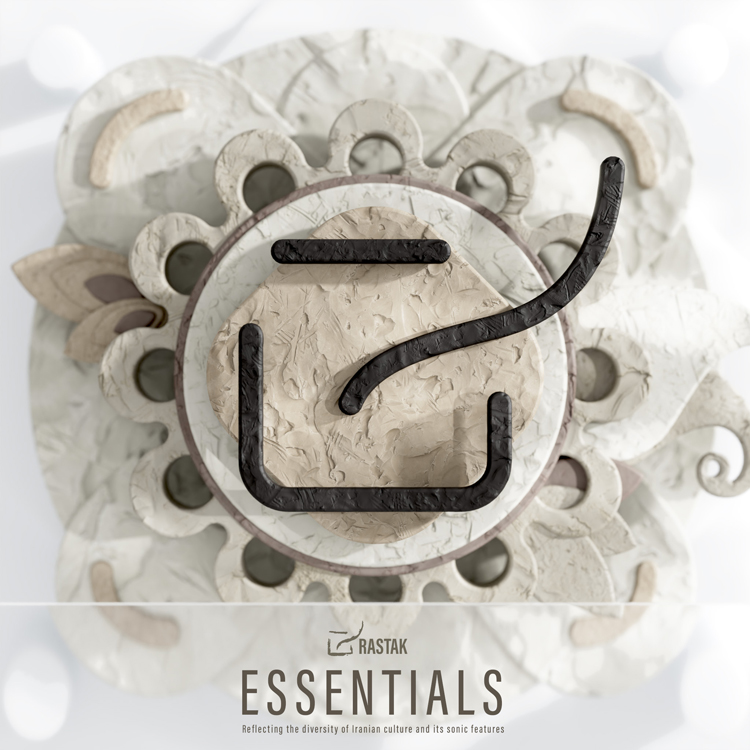Rastak – Essentials (Self-release, 2023)
Rastak’s self-released album, titled “Essentials,” presents a carefully curated compilation of ten popular tracks that have been meticulously re-recorded and re-mastered for an enhanced listening experience.
Each beautifully-crafted song within this collection weaves a unique narrative deeply rooted in ancient Iranian culture and history. These narratives serve as a powerful medium to foster connections among people and to preserve the diverse cultural heritage of Iran. By sharing these stories through their music, Rastak takes immense pride in ensuring the perpetuation of Iran’s rich cultural legacy.
The track list of “Essentials” is as follows, showcasing a diverse range of regional influences:
Sakineh: inspired by a traditional song originating from the southern region of Kerman.
Laleler: Derived from a song hailing from Azerbaijan.
Sozaleh: A rendition of a Kurdish song.
Baroon: A renowned melody originating from Lorestan.
Botorai: Adapted from a Kurdish tune.
Raana: A Gilaki song originating from the northern parts of Iran.
Leila: Based on a song from Khorasan.
Wahar: Inspired by a Kurdish song.
Vasoonak: A highly acclaimed tune from Shiraz.
Tanbur: Drawing inspiration from a Kurdish song and serving as a maqam for tanbur.
Regarding the background of the music group Rastak, the term “Rastak” holds a profound meaning in Farsi, signifying a newly sprouted plant that thrives at the base of a tree. It represents a plant that, when fully grown, may surpass the main tree in height and strength. In this sense, Rastak likens itself to this natural process, as it draws inspiration from the roots of Iranian history and culture, incorporating them into their music. By utilizing ethnic-based themes and employing specific arrangements, Rastak aims to establish a deeper connection with a diverse global audience.
Rastak has garnered considerable recognition as one of the most prominent bands in Iranian contemporary folk music. Originating as an experimental music group in 1997, Rastak’s primary objective revolves around the collection, documentation, and performance of Iranian folk music for a global audience. The group seamlessly combines language, culture, and historical elements, skillfully mixing traditional instruments and forms with contemporary rhythms. Rastak’s approach involves bridging the generational gap by interweaving well-known melodies with lesser-known ones, thereby creating a musical landscape that unifies diverse regions of Iran.
Over the years, Rastak has performed in numerous international music festivals and concerts held in countries such as England, Austria, Germany, France, Italy, Spain, The Netherlands, Sweden, the United States, Canada, Australia, India, Japan, Malaysia, Chile, Poland, Turkey, Georgia, Belgium, Oman, Belarus, Kazakhstan, Bangladesh, Iraq, and the United Arab Emirates. These performances serve as a testament to Rastak’s enduring appeal and their ability to captivate audiences worldwide with their enchanting fusion of traditional Iranian music and contemporary elements.
Band Members: Siamak Sepehri on tar, band director; Farzad Moradi, vocalist and multi-instrumentalist; Behzad Moradi on vocals and percussion; Dina Doos on kamancha and alto kamancha; Akbar Emaeilipour on tar, setar, oud; Majid Poos on percussion; and Sahar Rashidi on qanun.
Guest Artists: Omid Mostafavi on percussion; and Hamed Bolandhemmat on wind instruments.
Buy Essentials.


